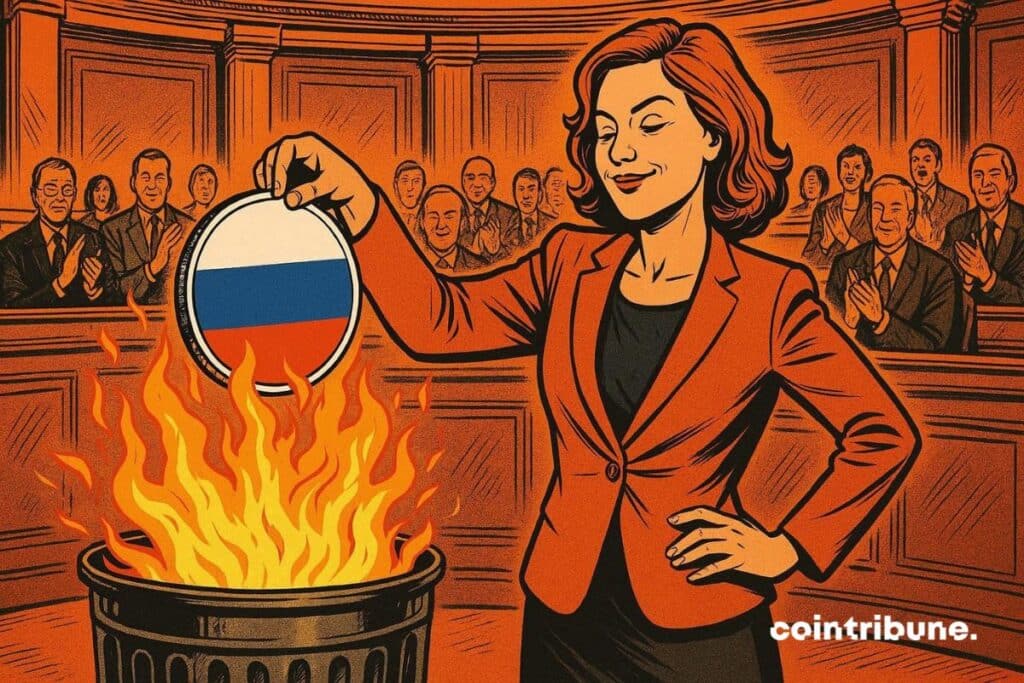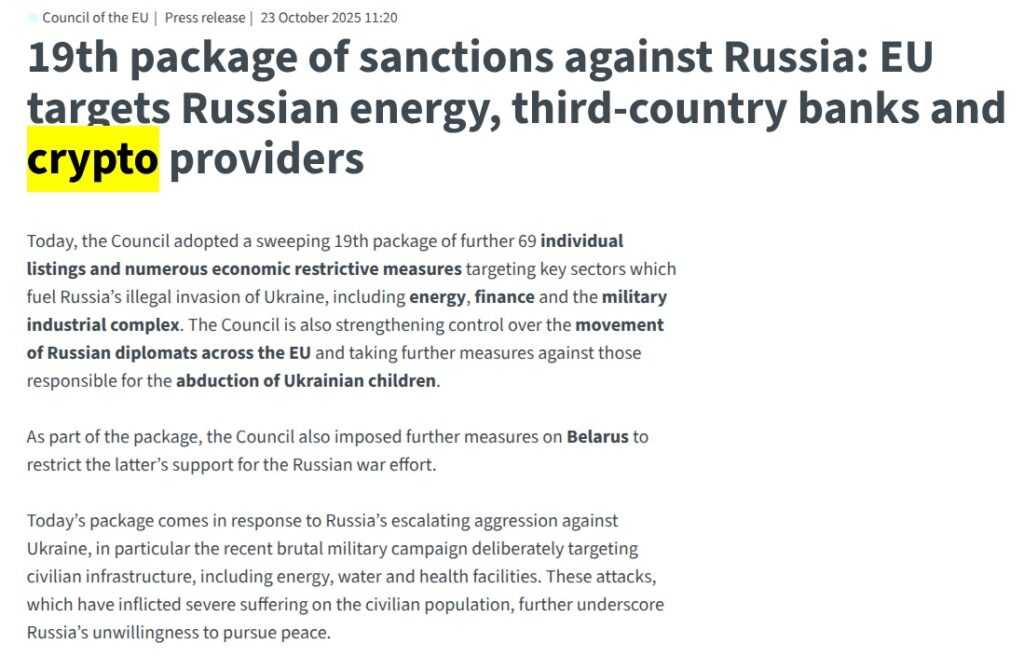The EU Blocks the A7A5 Stablecoin and Russian Crypto Platforms
The European Union delivers a major blow to Vladimir Putin by sanctioning Russian cryptos and stablecoins. Objective: to cut off funding to Moscow and prevent the circumvention of sanctions through digital assets like bitcoin or the mysterious A7A5.

In Brief
- The EU bans the A7A5 stablecoin and sanctions Russian crypto platforms to cut war funding in Ukraine.
- Eight banks and oil traders are targeted by the EU for their role in evading Russian sanctions via cryptos.
- The EU’s 19th sanctions package marks a turning point in the economic war, but its effectiveness depends on controlling decentralized digital assets.
The A7A5 Stablecoin, Moscow’s Financial Weapon: Why the EU Fears It So Much
The A7A5 stablecoin, pegged to the Russian ruble, has become a key tool for Moscow to circumvent international sanctions. Especially now that Russia has taken the lead in crypto adoption ahead of the United Kingdom. Created with the support of the Russian state, the A7A5 facilitates discreet financial transactions, often linked to the funding of the war in Ukraine.
According to the European Commission, significant volumes of A7A5 have been used for cross-border payments! Thus escaping regulators’ radars. The EU has decided to respond by banning any transaction involving this stablecoin within its member states. This measure targets not only the Kyrgyz issuer of A7A5 but also the crypto platforms that allow its exchange.

For European authorities, this is a crucial step to limit Russia’s ability to finance its military operations.
Crypto Platforms and Phantom Banks: The EU Tightens the Screws
The European Union does not stop at targeting the A7A5 stablecoin. It extends its sanctions to a network of banks and crypto platforms accused of facilitating the circumvention of financial restrictions. Eight banks and oil traders, based in Tajikistan, Kyrgyzstan, the United Arab Emirates, and Hong Kong, are now in the spotlight. These entities have played a key role by enabling Russian actors to use cryptos like bitcoin or Tether to make international payments.
Through the 19th sanctions package, the EU now bans Russian crypto payment providers and related software. All this while restricting access to national payment systems like Mir and SBP. These measures aim to close financial exit doors used by Moscow.
Crypto War VS Traditional War: What Real Effects on the Russian Economy
The EU’s sanctions against Russian cryptocurrencies and stablecoins could have major repercussions.
- For Russia:
The loss of access to tools like A7A5 limits its ability to finance military activities and to circumvent economic restrictions. The Kremlin’s and oligarchs’ reactions will be closely watched.
- For the EU:
These measures could also fragment the European crypto market, with repercussions on exchanges and investors. Platforms like Binance or Kraken will have to adapt to this new regulatory framework or face sanctions.
However, can cryptos really be controlled? With the emergence of decentralized solutions and technologies like mixers or VPNs, regulation remains a significant challenge.
With this 19th sanctions package, the EU shows that the economic war is also fought on the blockchain. But in a world where borders are digital, will cryptos remain a double-edged sword? One thing is sure: this decision marks a turning point in the fight against illicit financing. And you, do you think these sanctions will be enough to limit Russia’s financial influence?
Maximize your Cointribune experience with our "Read to Earn" program! For every article you read, earn points and access exclusive rewards. Sign up now and start earning benefits.
The world is evolving and adaptation is the best weapon to survive in this undulating universe. Originally a crypto community manager, I am interested in anything that is directly or indirectly related to blockchain and its derivatives. To share my experience and promote a field that I am passionate about, nothing is better than writing informative and relaxed articles.
The views, thoughts, and opinions expressed in this article belong solely to the author, and should not be taken as investment advice. Do your own research before taking any investment decisions.